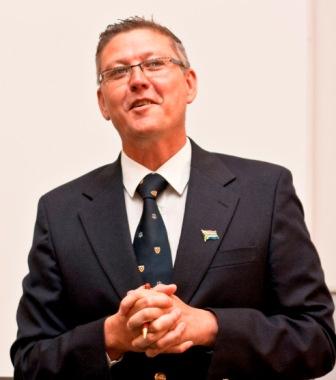
It all started back in 2004, when Prof Russell Kaschula first used the term “technauriture” in an article published by the South African Folklore Journal. Seven years on, the term is really “gaining legs” as Prof Kaschula puts it, with increasing international attention and a paper to be presented at the African Languages Association of Southern Africa conference in July 2011.
The most recent development is an Occasional Paper commissioned by the World Oral Literature Project at Cambridge University as part of their Occasional Paper series focusing on a range of these issues around the world. This has come about partly as a result of the work that Prof Kaschula has done with the Dept of Languages and Cultures of Africa at the University of Leiden, where the Verba Africana series of DVDs is being produced to reflect storytelling in Ghana, Zanzibar and Tanzania, and with Humboldt University in Berlin.
The paper for Cambridge University is entitled From oral literature to technauriture: What’s in a name? and has been written by Prof Kaschula and Andre Mostert, who successfully completed a Masters thesis on developing a digital model for the capturing and utilisation of African oral poetry.
Prof Kaschula hopes that Mostert, who is currently based at the University of East London (UK) and is a Research Associate of the Rhodes School of Languages, will return to pursue a PhD in this field, as it will further enhance the academic project around the concept of “technauriture”.
According to Prof Kaschula, the term has steadily been gaining credence, despite a certain amount of resistance and contention from some academic circles.”It’s amazing how defensive and territorial people can become when you come up with a new term – even when as academics we are supposed to be about creating new knowledge.”
In December 2009, the internationally reputable Journal of African Cultural Studies published Prof Kaschula and Mostert’s paper Analyzing, digitizing and technologizing the oral word: The Case of Bongani Sithole and Prof Kaschula was referenced in an article by Flora Veit-Wild of Humboldt University published in the Journal of Southern African Studies in September 2009.
She writes, “South African linguist Russell Kaschula has proposed the term ‘technauriture’ to designate the new genres of text emerging from the literary encounter between oral, written and modern technology.” He also presented at paper on the concept at an international conference on African Language and Literature at the Univ of Botswana two years ago.
Prof Kaschula says he would like to see “technauriture” used not so much as a definition, but rather as a term that provides a conceptual framework for examining and analysing the relationship between technology, aurality (speaking and listening) and literature. This has become necessary because of the rapid development in technology and its increasing accessibility, even to people and cultures with strong oral traditions.
He cites the example of Zolani Mkiva, an oral poet who performed as a praise singer at the re-launch of the Cory Library: Mkiva comes from a very traditional background, but is also very literate (he has an Honours degree from the University of the Western Cape) - he performs orally, but he has also published in books and on his website poetofafrica.com
There is increasing evidence that, ironically, the path of technology is creating a fertile environment for the resurgence of orality and its innate value to society. Prof Kaschula argues that the term “technauriture” offers a suitable encompassing paradigm for further engagement with the oral word and its effective application within modern human society.
By Cathy Gush
Photo: Sophie Smith
